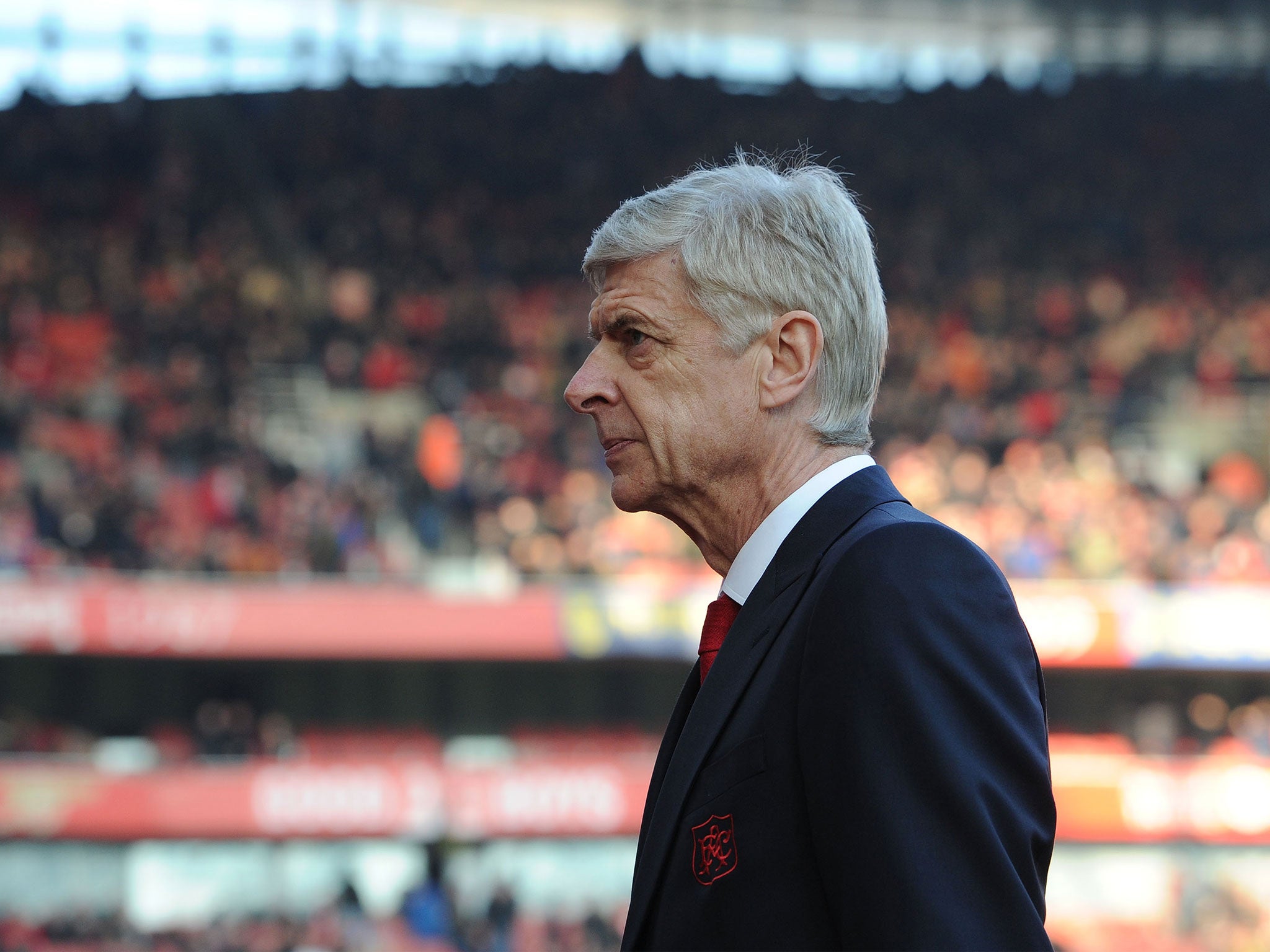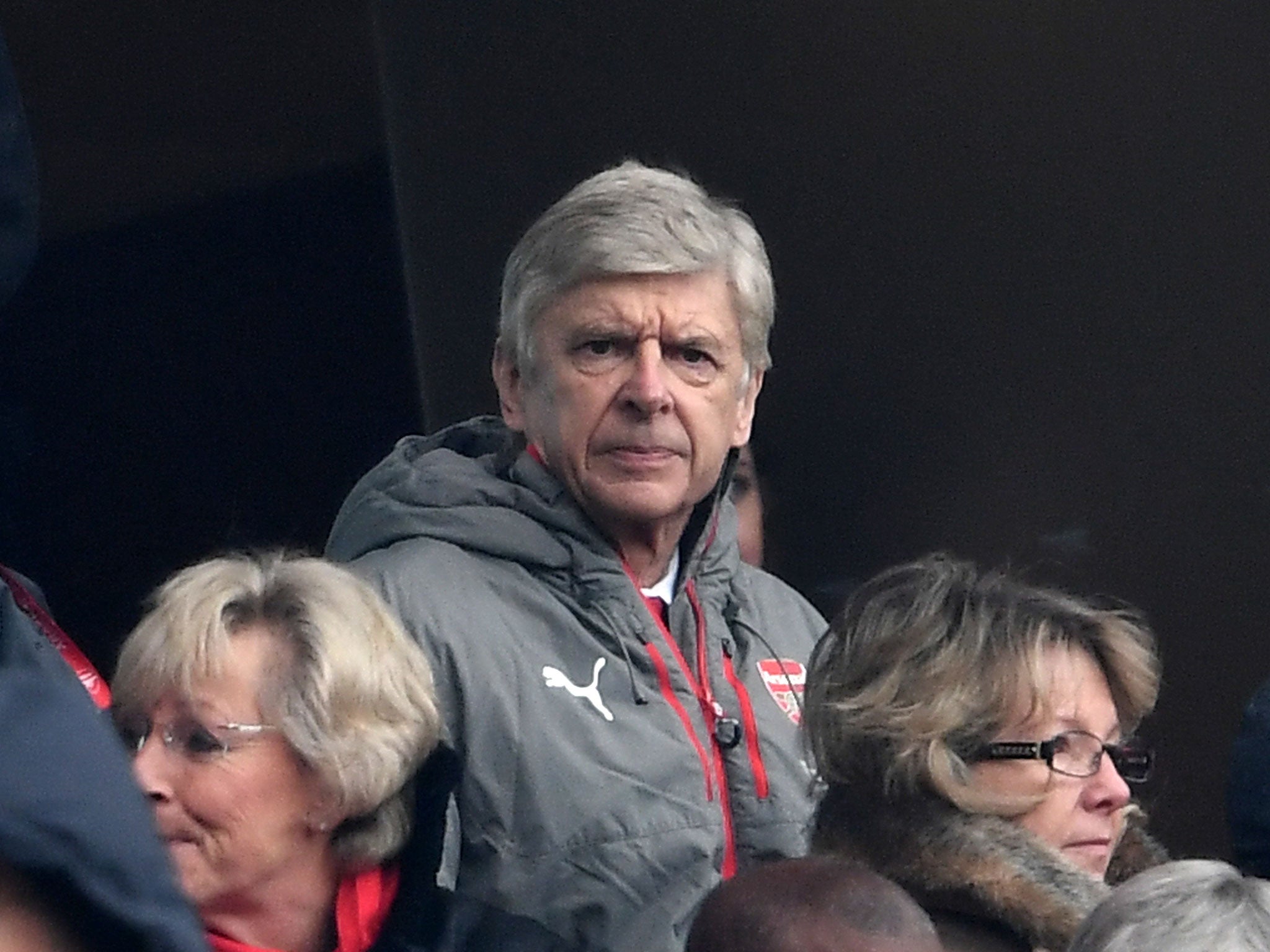Arsenal caught in a vicious cycle of failure - but their issues run much deeper than Arsene Wenger
Wenger's depature won't be enough to remedy Arsenal's ills. The Frenchman has established a way of life at the club that needs unstitching and tweaking before the Gunners can move forward

After the latest landmark humiliation, the latest murmurings from Arsenal are that Arsene Wenger’s future will be now be decided at the end of the season, and that it will be a “mutual” process.
If that slight shift in position sounds like a bit of a muddle, it also sums up the entire situation, and a certain lack of clarity.
There are many elements of Wenger’s management that are now a problem for Arsenal in terms of this club actually making progress as a football team and competing, but then his departure will itself probably create another problem - and one they haven’t exactly given themselves the best chance of solving.
Consider this. When you have a situation as historically distinctive as this, and when one manager has held such an all-powerful position for so long, it really requires a lot of planning and reshuffling to give a succession any chance of going someway smoothly. It can never really be a case of a brighter young modern manager coming and just picking up everything where Wenger left it and building on all that for something better.
It’s not that simple, and Arsenal have arguably made it much harder for themselves. There has been no real planning or reshuffling in that sense. That is perfectly illustrated by the fact that, as late as mid-February, no-one has any idea whether he will actually go. There remains the very strong possibility Arsenal could have to suddenly deal with the biggest change in their history - other, that is, than actually appointing Wenger in the first place - at almost a moment’s notice; with very little time between the reality of the announcement and how they actually handle it.
This is not to cast undeserved criticism of Wenger’s overarching work at the club, or his “legacy” in terms of what he leaves. It is absolutely true and so admirable that he has been the primary force in transforming Arsenal and creating a modern super-club, complete with a fine stadium, fine facilities and so much potential.
What a club ‘is’, however, is still a very different issue to how it works inside. The macro can be fine at the same time that the micro needs addressing. How many times, after all, did we hear about the scale and scope of the club that Sir Alex Ferguson had built at Manchester United in the years up to his retirement? When it came to managing things after his departure, though, club officials found that absolutely everything around Old Trafford and Carrington was built towards the Scot’s personal references - rather than what was generally best for a modern super-club. It has required - and still requires - a lot of unstitching, something that an actually workable succession plan would have seen take place well before Ferguson went. Look, now, at how they’re still reshaping their international scouting. The big benefit of the club Ferguson had created was of course that they had the resources and wealth to lessen the impact of structural problems, but there’s still so much work involved.
It is much the same at Arsenal, and expect to hear a lot about the time around Ferguson’s retirement in the next few months, because it is so relevant and there are so many parallels with Wenger’s situation.

As with his grand old rival and friend at United, absolutely everything around the Emirates and London Colney is built towards the man they call “the boss”. That is going to require unstitching too. It is all the more important because so much with this kind of thing comes down to the manager’s innate abilities, the mindset and perception that elevated him above so many others in the first place. With some things like this, elements only work because of the specific genius of the man involved, as was the case with Ferguson. That is only going to add to the challenge of figuring things out.
But it goes even deeper.
There isn’t a single football decision at Arsenal that is made without going through Wenger. He has vetoed big calls other figures have made. The change to that process alone is going to take a lot to deal with.
It raises even more questions about the managerial structure, before even getting to the broader club structures. Does it mean that hiring a director of football, for example, is essential?
What is undeniably essential is that they appoint a properly forceful personality as head coach, and that trait arguably is as important as any modern tactical acumen. That is for two reasons. First of all, you need someone able to handle the considerable pressure of directly replacing a figure so pervasive in every way. Secondly, you need someone that is able to deal with the necessary changes that are going to be taking place under and above him, while still being able to win football matches.
They can’t afford a manager as visibly intimidated by such a job as David Moyes was at Manchester United. They need one who has the assurance to handle so many ructions, but still keep the team on track.

It is a challenge only heightened by the fact so many of Arsenal’s current players look so discardable.
It is also the muddle of all this. Wenger’s time was arguably up as long ago as 2012, but there is actually a strong argument he should stay in the job specifically to give the club appropriate time to prepare for his departure.
It’s unlikely to happen like that, though. Ferguson himself showed the danger of publicly letting it be known when you plan to go in 2001-02 and even if such a deal was agreed in secret, it’s the kind of thing that always leaks out. There’s also the simple human element that a man of his standing at the club should be allowed leave in the right way.

None of this should be confused as an argument for Wenger to stay on. Arsenal simply aren’t maximising the ample resources that he has ensured they have right now, and that looks highly unlikely to ever happen under him again. At some point, they have to roll the dice. They have to take the risk.
It’s just no-one should be under any illusions about what will entail.
Within the next three years, be it this summer or later on, they’re going to go through one of the biggest historical changes any club can possibly go through. That’s a lot more than just changing the manager.
Join our commenting forum
Join thought-provoking conversations, follow other Independent readers and see their replies
Comments
Bookmark popover
Removed from bookmarks